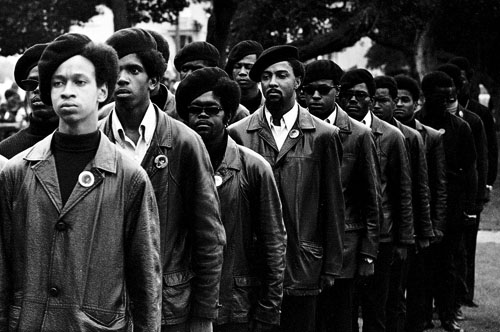Activism and revolutionary groups have been an integral part of Dominic Nigro’s punk-rock background, and next term he intends to bring that knowledge to Portland State students. In the ’80s, Nigro was entrenched in the punk-rock scene. By virtue of his punk roots, he became heavily politicized. Subsequently, the teachings of revolutionary groups began to take hold.
Students for Unity to offer free courses on revolutionary movements

Activism and revolutionary groups have been an integral part of Dominic Nigro’s punk-rock background, and next term he intends to bring that knowledge to Portland State students.
In the ’80s, Nigro was entrenched in the punk-rock scene. By virtue of his punk roots, he became heavily politicized. Subsequently, the teachings of revolutionary groups began to take hold.
The Black Panthers, the Gay Liberation Front and the Women’s Movement are only a sampling of some of the groups that Nigro has firsthand experience with.
In collaboration with the Students for Unity student group, Nigro is offering two free courses this coming spring at PSU. The first will be on the history of the Black Panthers, and the second will focus on other revolutionary groups.
Each course will consist of 10 lectures covering a variety of topics and events that define these revolutionary movements. Both courses will focus on the groups’ activities from the 1960s through the ’70s.
When asked about his motivations for teaching these courses, Nigro said, “I felt a drive to do it, and I have a responsibility to pass this information on.”
Nigro further explained that the history of these groups is largely misunderstood—if people even know anything about them in the first place.
In addition to learning about these groups, students will also learn about their relationships with the FBI.
“People need to understand that they didn’t just fizzle out,” Nigro said.
Most of these groups have a bad reputation because of the FBI’s efforts at smear campaigns, he explained, whether by internally disrupting these groups or by discrediting them from the outside.
“It’s our past, and it was buried by our government,” Nigro said.
These courses are not only meant to teach a part of history mostly unknown to the public, they’re also meant establish a sense of community, he said.
Nigro explained that people today are silenced for two primary reasons: they are afraid to speak out against our government, and they are apathetic.
He said that people today think movements have to start big in order to have an impact. Nigro wants people to realize, however, that movements often start small and with individual enthusiasm. He cited the Black Panther movement and the fact that it started with just two people.
Ultimately, Nigro hopes that attendees, after understanding the struggle these people went through, will be able to walk away from these courses with a greater sense of community.
“I have empathy for people who react to learning this,” Nigro said. “But it’s a process that you can’t turn your back on.”
The exact dates and times for these courses are pending. Nigro said this information should be coming soon and will be available on Students for Unity’s website in the near future.
“I want people to wake up,” Nigro said when asked what he hopes to see happen in the class. “The only thing that comes to a sleeper is a dream.”








This sounds like an interesting course, if all aspects,of the American revolutionary groups of the 1960’s and 70’s, good as well as bad, are examined.
A useful book to teach with on that era would be “COINTELPRO Papers”, which shows some of the most explosive government documents imaginable and brought to light under the Freedom of Information Act. The raw files clearly show how the FBI and other US law enforcement agencies planted agents in protest groups to foment violent acts for the purpose of smearing them in the minds of the public.
PSU was a hotbed of protest activity during the late 60’s and early 70’s with a lot of documentation and video to refer to. I wish this educational effort all the best..